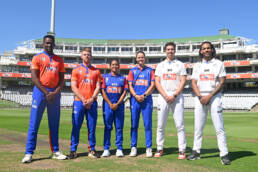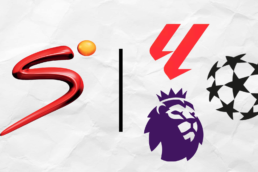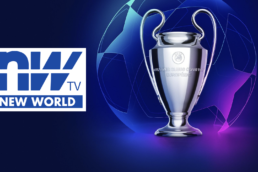The tournaments presented by the Council of Southern African Football Associations (Cosafa) are not only a celebration of excellence in southern African football, but they also give players, coaches and referees from the region the chance to hone and grow their skills on an international stage. But while the Cosafa Cup, for example, has been used by national men’s teams to build up a bigger pool of players for national duty, just how is Cosafa ensuring the sustainability and future of this vital and sometimes overlooked part of the African football landscape?
How does the business work?
Cosafa was established in Malawi in 1983 and consists of 14 members from southern Africa, bringing them under a single umbrella, “with the goal of developing the game of football in the region”. The 14 full-time members are Angola, Botswana, Comores, Lesotho, Madagascar, Malawi, Mauritius, Mozambique, Namibia, Seychelles, South Africa, Swaziland, Zambia and Zimbabwe. Reunion are an Associate Member.
The flagship Cosafa Cup tournament was started in 1997 and an administrative office was opened in Johannesburg in 2008.
Broadcasting
Broadcasting is done through a combination of Cosafa’s in-house production and SuperSport, the dominant broadcaster on the continent. One of the major successes has been CosafaTV, which, “through a media partnership with Caxton publishers, generated almost 2.5-million video plays of Cosafa content at the six tournaments held in 2021”. This included a mixture of live matches, interviews and news, with all but the COSAFA Cup streamed live across the globe through COSAFA.TV. In addition, matches are beamed live on SuperSport’s PSL channel as well as free-to-air through the South African Broadcasting Corporation (SABC).
Participation Fees and Prize Money
Despite this, the organisation has struggled financially in recent times and is reported to have posted losses amounting to R2.5-million in the financial year ending September 30 2019. To mitigate the effects of the Covid-19 pandemic, the regional body introduced participation fees in 2021. An amount of US$20,000 was required for member associations to compete in the Cosafa Cup and a fee of US$10,000 was levied for the inaugural Women’s Champions League and Futsal competitions.”
Zambia, the winning team in this year’s Hollywoodbets Cosafa Cup, received R500,000 in prize-money. Namibia, the runner-up, earned R250,000, while Senegal, who took bronze, earned R150,000. The fourth-placed side went home with R100,000
Eswatini forward Sabelo Ndzinisa won the Golden Boot after he scored three goals, while Botswana walked away with the Fair Play Award. The individual awards all carry a R20,000 first prize.
 Sponsors And Partners
Sponsors And Partners
To fund the cost of tournament operations, Cosafa has three tiers of support: the naming rights sponsor, the host city and tournament partners. Hollywoodbets has made a valuable contribution to football in the region after first acting as associate sponsors for the men’s Cosafa Cup and women’s championship in 2019. The betting firm continued to support southern African football after taking up the role of presenting sponsors of the 2020 Cosafa Women’s Championship as well as associate sponsors of the men’s under-20 Championship.
In 2021, Cosafa announced a three-year partnership with the KwaZulu-Natal Provincial Government and the City of eThekwini to host several tournaments in Durban, including the flagship Cosafa Cup. The agreement runs from August 2021 to December 2023, and includes the Cosafa Cup, Cosafa Women’s Champions League and Cosafa Beach Soccer competition, thus ensuring certainty over the hosting of the trio of annual events.
Southern Sun, who have hotels and resorts in South Africa, Africa, the Seychelles and the Middle East, is the “Official Hotel Partner”; aQuellé is the Official Hydration partner with its range of spring water, soft drinks and new ViV Power and Sports drinks. In addition to Cup-eventing partners, Cosafa has also signed a memorandum of understanding (MOU) with Spain’s LaLiga, to ensure a “steady stream of activities in the coming years that will benefit the growth of the game”. One of the initiatives saw two players at the 2020 Cosafa Women’s Under-17 Championship selected for a “trip to Spain in early 2021, where they were able observe training sessions at elite clubs and learn the football culture”. Marcos Pelegrin, LaLiga southern Africa managing director, says the workshops are part of the organisation’s aim to upskill coaches in the region.
“As part of our continued strategy in southern Africa, LaLiga, with Cosafa, aims to increase tools and resources that players, coaches and administrators can have access to in order to diversify the views and ways of applying football strategies and tactics to grow the world view that already exists within the continent,” said Pelegrin.
 Flash Sponsorship has been appointed as the Exclusive Commercial Agent to Cosafa, “providing a full-service sponsorship solution including a valuation of the platform and full rights audit as well as the development of go-to-market proposals tailored to specific industry sectors”.
Flash Sponsorship has been appointed as the Exclusive Commercial Agent to Cosafa, “providing a full-service sponsorship solution including a valuation of the platform and full rights audit as well as the development of go-to-market proposals tailored to specific industry sectors”.
Over the years, the Cosafa region has produced world-class talent, and much of that talent has had its skills enhanced by participating in Cosafa competitions. As more sponsors and partners come on board, better facilities and programmes are able to be deployed in order to increase the standard of football in the region.
The sustainability of Cosafa’s competitions contributes to a viable, vibrant part of football in southern Africa. There is much to be confident about, with administration, sponsors and hosts committed to the future success of the tournaments.
Related Posts
February 20, 2024
World Sports Betting To Sponsor Western Province Cricket Association
World Sports Betting has announced a renewed sponsorship agreement with the…
February 20, 2024
MultiChoice Renews Rights To LALIGA, EPL And Champions League
SuperSport, the leading African sports broadcaster, has made significant…
February 20, 2024
New World TV Secures UEFA Competition Rights For Frech-Speaking Sub-Saharan Africa
New World have secured exclusive rights to broadcast the UEFA Champions League,…



